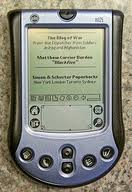
From the Frankfurt Book Fair, via The Bookseller:
Retailers will need to develop and market their own dedicated e-book readers if they are to compete with Amazon, delegates at Frankfurt Book Fair have been told.
Speaking at a Google panel about e-books, Bloomsbury executive director Richard Charkin said: “Essentially a huge proportion of e-book sales goes through the obvious internet retailer. Whilst the others have dabbled with offering e-books without a reader to go with them, they don’t seem to have made any significant inroads to Amazon’s market.”
Charkin referred to Waterstone’s own e-book device, which is expected to come to the UK market next year. The Bookseller revealed yesterday that the American Booksellers Association is in talks about making its own device and German booksellers Weltbild and Hugendubel launched a device last week. He added: “You need to be able to offer both [e-books and a device] if you are to take any share of the market.


































What retailers should do is join brand someone else’s device, not invest in creating their own device.
Bad advice. Bookstores are about content, not electronic devices. That strategy only works for mega-companies that can afford to do both… it will only kill small bookstore outfits. There are already more than enough readers, and no way to differentiate your hardware from anyone else’s… that’s a fool’s game.
Bookstores should be making every effort to be the place people want to buy ebooks from, and read on whatever device they have. That means value-adding to the ebooks. Deals, memberships, exclusive content, customer-tailored specials… those should be their strategies.
There are far more than enough indie eBook apps out there that could use exclusives and support from bookstores and publishers.
Telling them they need to hire programmers full time or dump money into more junk hardware is getting them into yet another non-content creating business they cannot afford to be in and have no experience with.
I am not impressed with Amazon and look what happened to HP.
Why replicate another foolish business models that are not focused on your strong points?
Uhm, that advice comes three years too late for North America, a year too late for europe and just in time for North Korea. Maybe.
ebook readers are a high volume/low margin business and any retailer getting into it now is just asking for trouble; they simply won’t be able to ramp up volume fast enough to get their pricing even to Sony territory. As is, anybody thinking of it now won’t get anything in place before mid-2012 at the earliest. (Anybody want to guess how low an entry level K5 might run? €60? £49? US$49 for a KSO? There is still room to cost-reduce the current design when you’re talking 8-digit sales volumes.)
The more realistic options left to regional retailers are to partner with a cross-national hardware vendor or to focus on the open multipurpose platforms; Windows, MacOS, Android,Blackberry, WP7. Maybe both, if the retailer has a big enough footprint to attract a Kobo or a Sony. Even the big asian CEs are bouncing off the entry barriers and walking away so its no place for a neophyte retailer that might rack up, at best, four digit monthly sales. (Ask FNAC.)
At this point even thinking of launching a branded flagship gadget is a waste of money (and worse, *time*) best spent updating the online storefront (for both e- and p-books), improving customer service, and streamlining operations to ensure survival at much lower pbook sales volumes.
Barring a major shift in display technology, ebook readers are headed even deeper into commodity territory (think: calculators) and any house brand reader will either end up pricing itself too high to be taken seriously or be so underwhelming as to be an embarrassment for the retailer.
Either way it would be too little, too late.
Spoken like someone who has no idea what it takes to build a successful device. Hint: it’s more than hiring a few hardware guys to throw together a few parts from China.
Note to self: If that’s Bloomsbury’s best advice, they’re in serious trouble themselves. So a hundred retailers should give us a hundred different readers (hardware or software)? Really?
We don’t need more junky and incompatible ereaders. We need more choices and better prices for content. The two formats that dominate the ebook market are epub and mobi. Sell the books in those formats until Amazon allows epub.
It’s also important to break into the Kindle market by providing an easy to use software solution like Calibre (or just link to Calibre’s site) to sideload ebooks onto Kindles. I use Calibre to load ebooks onto my Kindle, which vastly outnumber my Amazon purchases.
Price is another consideration. I refuse to pay the Agency Model prices. Bookseller should find a way around this and/or join in the class action lawsuit against the big 6 publishers. An easy to purchase, low cost ebook that is easy to load on any device will sell to the frugal consumers such as myself.